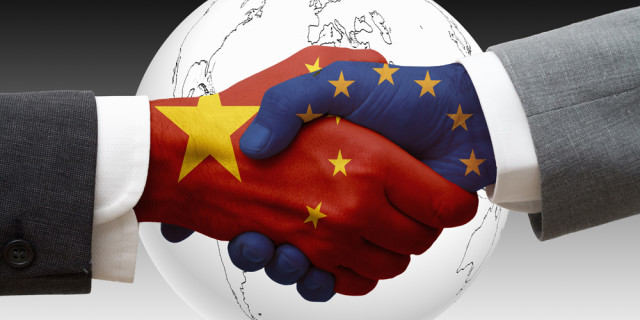
A recent EU white paper on China labeled Beijing a “systemic rival promoting alternative models of governance”
By Nazarul Islam
European countries are currently going through their burnout experiences, after collapse of development projects contracted with China. A senior diplomat has called this “China fatigue” – Even after years of investments that were big on promises fell short, on follow-through.
Twelve years ago, a Chinese construction firm had promised to build a new highway from Warsaw to Germany for a fraction of the cost of other bids. This project had been highlighted as a showcase Chinese prowess that would hopefully open up doors for new deals in the EU. Two years later, the Polish government had to scrap the contract after the Chinese firm hit cash-flow problems, and stopped work.
In the EU follow up cases, the Czech Republic has also grown disillusioned. In 2014, the Czech government had proclaimed that it would serve as “China’s gateway to Europe.” At the time, the Chinese mega company CEFC China Energy was promising to invest billions of dollars in the country.
Czech President Milos Zeman named the company’s chair, Ye Jianming, as an honorary adviser, a move that vindicated critics who had argued that China’s investments were never solely economic—they were also about building political influence. CEFC then went on a shopping spree, snapping up stakes in everything from Czech football clubs and media groups to transportation companies and breweries.
Again, in 2018, after years of negligible progress on the investments, Ye was suddenly arrested in China on corruption charges. CEFC, along with its Czech acquisitions, was taken over by the Chinese state.
In response to such incidents, several European countries have tightened up their screening of Chinese investments. In 2018, the German government, citing national security, blocked a Chinese investor from buying Leifeld Metal, a leading German producer of metals for the automobile, space, and nuclear industries.
It was the first time that the German government had vetoed a Chinese takeover. The move was followed by a new law giving the government the power to block a non-European investor from buying a ten percent or higher stake (down from 25 percent) in a German business. The law includes media companies, a sign that Germany is worried about Chinese information influence.
A number of other European countries have adopted similar measures. In part as a result of more rigorous screening, as well as shifts in Chinese decision-making, Chinese foreign direct investment in the EU has fallen by 50 percent from its peak in 2016, according to a report by the Rhodium Group and the Mercator Institute for China Studies.
China’s BRI has drawn particular skepticism from EU policymakers, who see golden handcuffs behind Beijing’s promises of lavish spending. In some places, the handcuffs are already snapping shut. In 2016, Greece and Hungary—both recipients of massive Chinese economic investment tied to the initiative—watered down language issued by the EU on Chinese aggression in the South China Sea.
In 2017, Greece torpedoed an EU statement on Chinese human rights violations. Earlier this year, Portuguese Prime Minister António Costa, whose country has received significant Chinese investment, took a strong stand against tighter European screenings of Chinese investments. “We’ve now reached a situation where China essentially has veto power inside EU decision-making bodies,” one senior EU policymaker observed recently,
As some European countries have grown disenchanted with China’s behavior, they have started to push for a more coherent EU-wide strategy. A recent EU white paper on China labeled Beijing a “systemic rival promoting alternative models of governance” and called on the EU to pursue a more reciprocal relationship with China and to strengthen its own industrial base. At this year’s annual EU-China summit, which took place after the white paper was published, the mood was tenser than in previous years.
The Europeans came ready to extract significant commitments from their Chinese counterparts on trade and economic policies, and the Chinese delegation arrived weakened by the trade war with the United States.
Both sides wanted to signal to Washington that they could make progress without resorting to President Donald Trump’s strong-arm tactics. The EU managed to win a number of concessions, including pledges to finalize a long-standing investment deal by 2020, improve market access for European companies, and limit forced technology transfers.
The two sides also agreed to intensify their discussions on strengthening international rules on industrial subsidies in the World Trade Organization (WTO) that China is known to bend. Yet given China’s past unwillingness to carry out structural changes and the EU’s lack of enforcement measures,
China is unlikely to keep its promises.
[author title=”Nazarul Islam ” image=”https://sindhcourier.com/wp-content/uploads/2021/05/Nazarul-Islam-2.png”]The Bengal-born writer Nazarul Islam is a senior educationist based in USA. He writes for Sindh Courier and the newspapers of Bangladesh, India and America. He is author of a recently published book ‘Chasing Hope’ – a compilation of his 119 articles. [/author]